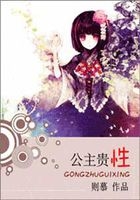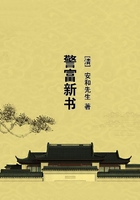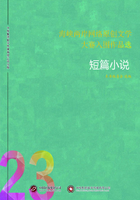Alfonso was far surpassed in learning by Federigo of Urbino, who had but few courtiers around him, squandered nothing, and in his appropriation of antiquity, as in all other things, went to work considerately.It was for him and for Nicholas V that most of the translations from the Greek, and a number of the best commentaries and other such works, were written.He spent much on the scholars whose services he used, but spent it to good purpose.There were no traces of a poets' court at Urbino, where the Duke himself was the most learned in the whole court.Classical antiquity, indeed, only formed a part of his culture.An accomplished ruler, captain, and gentleman, he had mastered the greater part of the science of the day, and this with a view to its practical application.As a theologian, he was able to compare Scotus with Aquinas, and was familiar with the writings of the old Fathers of the Eastern and Western Churches, the former in Latin translations.In philosophy, he seems to have left Plato altogether to his contemporary Cosimo, but he knew thoroughly not only the Ethics and Politics of Aristotle but the Physics and some other works.The rest of his reading lay chiefly among the ancient historians, all of whom he possessed; these, and not the poets, 'he was always reading and having read to him.'
The Sforza, too, were all of them men of more or less learning and patrons of literature; they have been already referred to in passing.
Duke Francesco probably looked on humanistic culture as a matter of course in the education of his children, if only for political reasons.
It was felt universally to be an advantage if a prince could mix with the most instructed men of his time on an equal footing.Lodovico il Moro, himself an excellent Latin scholar, showed an interest in intellectual matters which extended far beyond classical antiquity.
Even the petty rulers strove after similar distinctions, and we do them injustice by thinking that they only supported the scholars at their courts as a means of diffusing their own fame.A ruler like Borso of Ferrara, with all his vanity, seems by no means to have looked for immortality from the poets, eager as they were to propitiate him with a 'Borseid' and the like.He had far too proud a sense of his own position as a ruler for that.But intercourse with learned men, interest in antiquarian matters, and the passion for elegant Latin correspondence were necessities for the princes of that age.What bitter complaints are those of Duke Alfonso, competent as he was in practical matters, that his weakliness in youth had forced him to seek recreation in manual pursuits only! or was this merely an excuse to keep the humanists at a distance? A nature like his was not intelligible even to contemporaries.
Even the most insignificant despots of Romagna found it hard to do without one or two men of letters about them.The tutor and secretary were often one and the same person, who sometimes, indeed, acted as a kind of court factotum.We are apt to treat the small scale of these courts as a reason for dismissing them with a too ready contempt, forgetting that the highest spiritual things are not precisely matters of measurement.
Life and manners at the court of Rimini must have been a singular spectacle under the bold pagan Condottiere Sigismondo Malatesta.He had a number of scholars around him, some of whom he provided for liberally, even giving them landed estates, while others earned at least a livelihood as officers in his army.In his citadel--'arx Sismundea'--they used to hold discussions, often of a very venomous kind, in the presence of the 'rex,' as they termed him.In their Latin poems they sing his praises and celebrate his amour with the fair Isotta, in whose honour and as whose monument the famous rebuilding of San Francesco at Rimini took place 'Divae Isottae Sacrum.' When the humanists themselves came to die, they were laid in or under the sarcophagi with which the niches of the outside walls of the church were adorned, with an inscription testifying that they were laid here at the time when Sigismundus, the son of Pandulfus, ruled.It is hard for us nowadays to believe that a monster like this prince felt learning and the friendship of cultivated people to be a necessity of life; and yet the man who excommunicated him, made war upon him, and burnt him in effigy, Pope Pius II, says: 'Sigismondo knew history and had a great store of philosophy; he seemed born to all that he undertook.'
Propagators of Antiquity We have here first to speak of those citizens, mostly Florentines, who made antiquarian interests one of the chief objects of their lives, and who were themselves either distinguished scholars, or else distinguished _dilettanti_ who maintained the scholars.They were of peculiar significance during the period of transition at the beginning of the fifteenth century, since it was in them that humanism first showed itself practically as an indispensable element in daily life.It was not till after this time that the popes and princes began seriously to occupy themselves with it.
Niccol?Niccoli and Giannozzo Manetti have been already spoken of more than once.Niccoli is described to us by Vespasiano as a man who would tolerate nothing around him out of harmony with his own classical spirit.His handsome long-robed figure, his kindly speech, his house adorned with the noblest remains of antiquity, made a singular impression.He was scrupulously cleanly in everything, most of all at table, where ancient vases and crystal goblets stood before him on the whitest linen.The way in which he won over a pleasure-loving young Florentine to intellectual interests is too charming not to be here described.Piero de' Pazzi, son of a distinguished merchant, and himself destined to the same calling, fair to behold, and much given to the pleasures of the world, thought about anything rather than literature.One day, as he was passing the Palazzo del Podest? Niccol?















